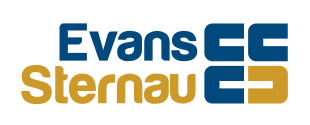Business Tax Deduction Cheat Sheet — The Woodlands CPA Firm
Evans Sternau’s tax deduction cheat sheet offers a clear guide for entrepreneurs. It explains how to track expenses, document properly and file returns to maximize savings and reduce tax liabilities.
Table of Contents
Evans Sternau CPA’s Business Tax Deduction Cheat Sheet is an essential resource for entrepreneurs. The guide simplifies IRS rules by explaining tax deductions, proper expense documentation, and filing processes in clear steps. It details strategies for tracking startup costs, travel expenses, interest payments, and more, empowering business owners to lower liabilities and boost cash flow. This comprehensive tool is invaluable for effective financial planning and smart tax management. A must-read.
Key Takeaways
- Tax deductions only work when the expense is ordinary and necessary. That test is the baseline for what can be claimed and what will get challenged.
- Good records come first, not last. Receipts, invoices, and a consistent method (cash or accrual) are what support deductions if the IRS asks questions.
- Classification changes the tax result. Direct vs indirect and capital vs operating costs determine whether you deduct now or recover the cost over time.
- Startup costs have tight rules. Startup expenses cannot exceed $50,000; only up to $5,000 is deducted upfront, and the remainder is amortised over 15 years.
- Your entity type drives the forms you file. Schedule C is used for sole proprietors, 1120 for C corps, 1120S for S corps, and 1065 plus K-1s for partnerships.
- Some “popular” deductions come with limits and extra proof. Travel needs strong business documentation, interest deductions can be limited for businesses over $27M in revenue, and QBI 199A can be up to 20% but phases out for higher incomes.

Evans Sternau is a reputable CPA firm in The Woodlands with a proven track record in the financial industry. We provide proactive tax, accounting and advisory services for business owners, entrepreneurs, and individuals seeking to optimize finances and achieve lifelong goals.
You can count on Evans Sternau CPA specialists to guide you in filing your returns accurately while maximizing all eligible business tax deductions to lower your overall liabilities and save money for years.
To get you started, our team created an essential business tax deduction list that will help you discover the most eligible tax breaks you’ve probably been missing out on. We also highlight what startup costs are tax deductible for a business to shed light on how budding entrepreneurs can optimize their financial position and thrive in the long term. Keep reading to stay updated.
What Are Tax Deductions?
According to IRS guidelines, a tax deduction is the amount eligible taxpayers subtract from their income when filing returns so that they don’t have to pay a tax on it. In terms of business deduction, the amount can be both ordinary and necessary expenses incurred during the operation of the entity.
Taking advantage of all the eligible deductions can save your business hundreds, if not thousands, of dollars every tax period. This can translate to a significant amount over the years, especially when claimed regularly.
For a deeper dive into specific deductions that can benefit small businesses, check out our guide on Common Tax Deductions for Small Businesses.
How Do Tax Deductions Work?
Typically, entrepreneurs have two choices when it comes to business startup tax deductions. These include standard deductions, where the tax body determines the deductible amount based on your filing status, and itemized deductions, which require proof of expenses to be excluded from the taxable income.
Here is a detailed process for claiming business deductions and an overview of how they impact the final tax bill when filing returns:
Step 1: Document Accurate Financial Records
Revisit your financial records and all business expense receipts to ensure they are accurate and ready to substantiate your claims if the IRS decides to audit the business. At this stage, you can leverage a consistent accounting method, whether cash or accrual, to stay abreast of all income and expenses.Step 2: Identify Eligible Expenses
After preparing the receipts and other financial records, examine all expenses to determine whether they are eligible. It’s worth noting that qualified expenses must be ordinary or necessary to be deducted. While ordinary expenses include prevalent costs of running a business in a specific industry, necessary expenses are unique costs relevant to your business.
Step 3: Classify the Expenses
There are two broad categories for classifying business expenses that are eligible for tax deductions, including direct vs. indirect costs and capital vs. operating expenses. Direct costs are associated with service provision or production of goods, while indirect expenses are costs incurred during operations. In contrast, capital expenses can be depreciated over time and differ from operational costs, which are deductible in the year spent.Step 4: Fill in the Tax Forms
The last step is completing the relevant tax forms accurately and submitting them to the IRS or state agencies on time. If you’re a sole proprietor, you can report your business income and tax deductions on Schedule C and attach it to your individual tax return. Other forms include Form 1120 for standard corporations, Form 1120S for S-corporations, and Form 1065 for partnerships. However, some business partners may receive Schedule K-1 to report part of their income on their respective individual tax returns.Have Questions About Business Tax Deductions?
How Deductions Impact the Final Tax Bill
Now that you understand the process of claiming eligible expenses when filing returns, how do business tax deductions work to provide money-saving opportunities? And what’s their impact on the final tax bill, especially if you also claim less-known costs, such as a business interest expense deduction?
For starters, these deductions can lower your taxable income and reduce the overall liability, ultimately leading to significant money-saving opportunities and better financial health for the underlying business. At the same time, claiming eligible deductions regularly enhances cash flow management, freeing up extra capital to fund new investments or other profit-oriented business initiatives.
Active business participation can also impact your tax obligations. Read more about how to Avoid Net Investment Income Tax with Active Participation.
With this in mind, here are some prevalent business expenses that may qualify for deductions:
Business Start Up Expenses
As an entrepreneur, you can start saving money as early as in your first year of running a business by claiming relevant expenses on your tax return. Prevalent business startup tax deductions that you can claim to offset the up-front costs of building a successful entity include market research, legal fees, and advertising expenses. However, the combined amount of these expenses must not exceed $50,000, and you can only deduct up to $5,000. Any remaining balance is amortized monthly over 15 years.
If you’re launching a business, it’s crucial to understand not only deductions but also the financial steps to take. Learn more in our article: Questions to Ask a CPA When Starting a New Business.
Business Deduction for Employment Taxes
If you hire full-time employees with benefits to help run your startup, you’re obligated to share the cost of payroll taxes, such as Medicare and Social Security, with them. These taxes are deductible as business expenses when filing returns, allowing you to lower the burden of hiring and retaining staff members. However, it’s worth noting that hires classified as independent contractors are solely responsible for their payroll taxes.
Business Deduction for Interest Payments
Traditional loans remain one of the most popular forms of fundraising for businesses seeking to expand, update equipment, or cover immediate operational costs. While a loan can be expensive in the long run, the interest paid on it qualifies as a startup expense deduction that can help offset some repayment costs.
But this expense is not a one-size-fits-all tax-reduction strategy for all businesses. Some IRS regulations may hinder you from deducting the entire interest amount, especially if you run a medium or large entity with over $27 million in annual revenue. With this in mind, it’s prudent to work with a proactive tax advisor at Evans Sternau CPA The Woodlands to help you maximize all the eligible deductions while ensuring compliance.
Effective tax planning can provide long-term financial benefits. Read about the 6 key benefits of tax planning for your business to see how strategic tax decisions can improve your bottom line.
Business Travel Expenses
Can I deduct business travel expenses when filing returns? We face this question many times when new clients walk into our offices. While it might be difficult to determine the eligibility of these costs, the IRS allows entrepreneurs to claim ordinary and necessary expenses incurred while traveling away from home or business. Our specialists can help you maintain accurate records of expenses that directly relate to your business activities to help increase their chances of being deductible.
Qualified Income Business Deduction 199A QBI
Individual, trust, and estate owners of pass-through entities, such as S-Corporations, partnerships, and single-member LLCs, are allowed to deduct up to 20% of their qualified business income when reporting profits during tax returns. However, it’s important to note that this business tax deduction is subject to phase-out for higher-income earners. This means some businesses require considerable depreciable assets or W-2 wages to be eligible for the tax break.
For additional tax savings, small business owners should explore the benefits of Section 1202 Qualified Small Business Stock.
Why Properly Documented Deductions Matter
Keeping proper and accurate documentation is crucial when it comes to claiming any startup expense tax deduction.
By ensuring you have up-to-date business itinerary logs, receipts, and invoices, you can provide sufficient evidence to back the deductions and lower the risk of an IRS audit, even if the claim is big. At the same time, proper documentation allows you to meet certain IRS standards to avoid non-compliance fines and penalties.
Accurate financial records not only support deductions but also help with broader financial planning. Consider the benefits of Outsourced CFO Solutions for expert financial oversight.

Tax Deduction Examples for Business Owners
Business owners can claim several other operational costs to maximize their startup expenses tax deduction. These include:
- Software and technology expenses: Examples of eligible deductions under this category include subscription costs for third-party business tools and expenses associated with running a website, such as hosting fees.
- Home office deduction: Entrepreneurs who use their home as a primary location for business operations can deduct part of their rent, utility bills, or other home-related expenses, such as a percentage of the mortgage interest when filing returns.
- Office supplies and equipment: Office supply expenses can quickly add up and eat into profits or interfere with cash flow. Fortunately, money spent on office electronics, furniture, and items like stationery can be claimed as a business expense during taxation.
- Certain types of business travel expenses: If you stay in hotels or book rental cars while traveling to connect with clients for business-related meetings, you can deduct these expenses to avoid paying taxes on them, especially if you have irrefutable proof that they are legitimate.
Maximize Business Deductions to Supercharge Cash Flow
Leverage our small business tax deduction cheat sheet to learn about various types of expenses that you can claim when filing returns. Besides lowering your overall taxable income, maximizing deductions allows you to save significant money for years when done consistently. In return, this boosts the startup’s cash flow, providing you with the financial flexibility needed to expand aggressively or reinvest in the business. Reach out to our professionals today to learn how you can get started.
Accurate accounting is essential for maximizing deductions. Learn how Outsourced Accounting Services can help streamline your business finances.
ABOUT EVANS STERNAU CPA LLC
Evans Sternau CPA is seeking reform in an industry where responsiveness and availability are the exceptions – not the norm.
Our global network of committed CPAs and accountants places proactive thinking at the forefront of our work. With robust service offerings and client support strategies, we are always searching for opportunities to serve your best interests.
While our philosophy is rooted in tried and trusted methods, our execution surpasses the norm and redefines the standard.
Evans Sternau CPA provides proactive tax, accounting, and advisory services for business owners, entrepreneurs and individuals with complex tax challenges. Evans Sternau CPA is for those that want year round support, not just during tax season.
FAQ
- Q1: How do I know if an expense is truly “business” and not personal?
A: Ask yourself: Would you still buy it if you didn’t run the business? If the answer is yes, it’s likely personal. If it clearly supports earning income, write down the business reason and keep the proof.
- Q2: What kind of documentation actually holds up if the IRS asks?
A: A receipt is step one. Pair it with the payment trail (bank or card) and a short note on the business purpose. For travel, add dates, location, and who you met or what the trip was for.
- Q3: I paid for a business expense with my personal card. Is that a problem?
A: Not automatically. Save the receipt, label the expense in your books, and reimburse yourself consistently. The goal is a clean trail that shows it was business-related, not mixed spending.
- Q4: What’s the biggest “audit magnet” deduction for small businesses?
A: Travel, vehicle use, meals, and anything that’s half personal. These can be deductible, but only when the business purpose is clear and the records are solid. Vague notes and missing logs are what cause issues.
- Q5: When should an expense be depreciated instead of deducted right away?
A: If it’s an asset that helps your business over time, think equipment, furniture, or major upgrades, it often gets treated differently than everyday operating costs. Your CPA can tell you the cleanest option.
- Q6: For business travel, what usually makes a deduction fail?
A: No link to business activity. Keep the “why” obvious: meetings, client work, a conference schedule. Personal side trips can complicate things, so separate costs and document what was business.
- Q7: QBI 199A sounds great. Who usually gets surprised by the limits?
A: Higher earners and some service-based businesses can run into phase-outs or extra rules tied to W-2 wages and assets. A quick review is worth it before you count on the full 20%.
- Q8: What’s the difference between startup costs and normal operating expenses?
A: Startup costs are what you spend to get the business ready to open, including research, legal setup, and early advertising. Operating expenses are what you spend to run it after you’re live. Mixing them up is common.

